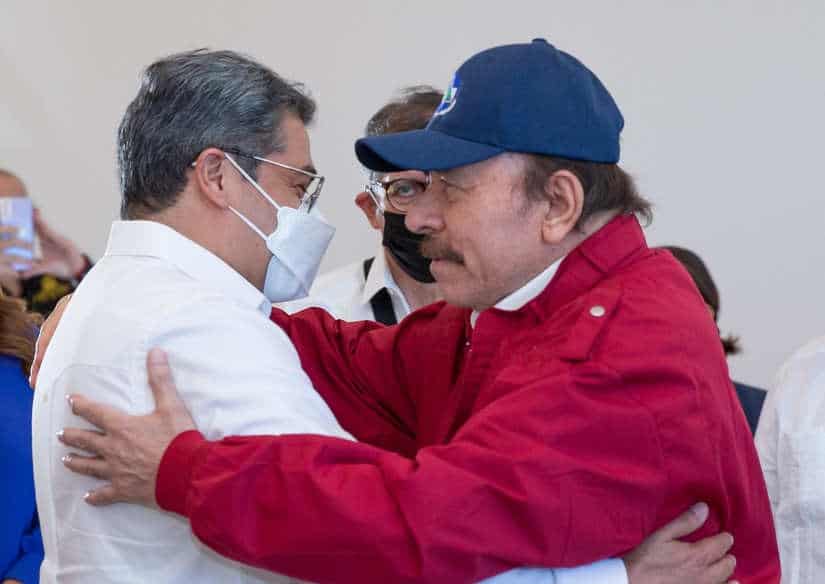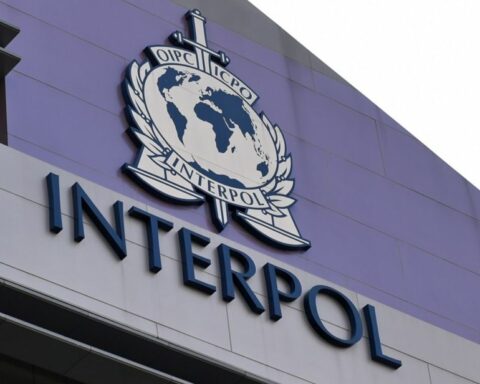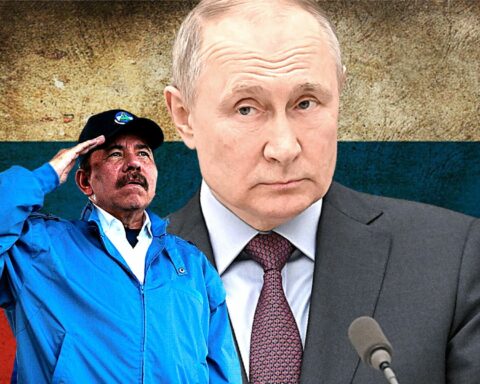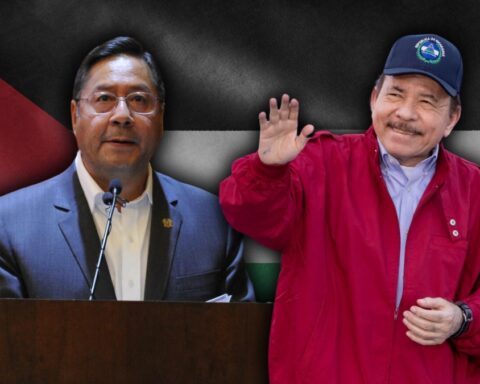The recent tensions between Nicaragua and El Salvador have their origin in the border delimitation agreement signed on October 6, 2021 between the then president of Honduras, Juan Orlando Hernández (JOH), and Daniel Ortega, in which the Cusco authorities did not participate, warned international analysts.
Managua sent a note of protest on February 6, denouncing the alleged incursion of four armed ships of the Naval Force of El Salvador in Nicaraguan territorial waters.
The incursion was in the waters of the Gulf of Fonseca, an area where Nicaragua, Honduras and El Salvador converge. The Salvadoran ships would have been intercepted by units of the Nicaraguan Naval Force, whose members reproached the crew members of the Salvadoran ships for their presence in Nicaraguan waters, but the neighboring country described the accusations as “false”.
El Salvador strongly rejects the content of the diplomatic note from Nicaragua; In addition, it expresses its strongest protest against the repeated violation of its sovereignty.
He urges the Government of Nicaragua to join in working together in the consolidation of a zone of peace and development. pic.twitter.com/aj8oo6xoBn
– RREE El Salvador?? (@cancilleriasv) February 8, 2022
The agreement between JOH and Ortega establishes the border delimitations in sea and land determined by The Hague, and would open the doors for a joint exploitation of the resources of the area. El Salvador did not adhere to this treaty.
Distracting acts and pressure for El Salvador
The Costa Rican university professor and expert in international law, Carlos Murillo Zamora, also does not think that these incidents will not transcend, that they are mere distracting acts of the internal problems of both Nicaragua and El Salvador, mainly due to the violations of democracy and civil liberties that occur in these countries.
“I see it more as a way for Managua to pressure El Salvador to comply with the provisions of the agreements signed with Honduras, as if President (Nayib) Bukele had also signed them. Let us remember that in this treaty, Nicaragua ceded a three-mile-wide strip of the Pacific Ocean to Honduras, with the understanding that El Salvador would cede a strip of the same extension to Nicaragua,” Murillo Zamora explained.
He added that taking into account that the so-called “mouth” of the Gulf of Fonseca has an extension of 18 nautical miles, each State that converges in the area would correspond to six miles. “Before this treaty, the mouth of the Gulf of Fonseca only belonged in equal parts to Nicaragua and El Salvador. And that no longer happens”, added Murillo Zamora.
Treaty still not ratified by the Honduran Congress
Ortega’s agreement with the former Honduran president has not been ratified by the Honduran Congress. The current president, Xiomara Castro Hernández, lost control of the Legislative Power after facing a rupture in the party coalition that brought her to power.
“The point is that there is no maritime border between Nicaragua and El Salvador because both countries have not started a negotiation process. The problem with El Salvador is that its Constitution establishes that its territorial sea is 200 miles, which is contrary to what is established by the United Nations Convention and international law,” explained Murillo Zamora.
The specialist believed that beyond the validity of the agreement signed between Nicaragua and Honduras, there are interests in this agreement that directly involve JOH and Ortega himself. At least on the side of the former Honduran president, many specialists have suggested that his interest lies in telling with the refuge of Nicaragua in case he eventually has to leave his country due to allegations of links to drug trafficking that he faces, which has led the United States to include him in its list of “corrupt and anti-democratic actors” and cancel his US visa.
They point out “ambiguity” of Nicaragua with sentences
A specialist in international law, who asked not to be identified, explained that the Daniel Ortega regime has shown an “ambiguous attitude” for political convenience with the Hague resolutions referring to the territorial delimitation in the waters of the Gulf of Fonseca.
After the resolution of The Hague in 2007 on the zone, the first position of the Ortega regime was that Nicaragua was not obliged to comply with it because it referred only to the limits between Honduras and El Salvador.
However, after the signing of the treaty between JOH and Ortega, when it was ratified in the National Assembly by the Ortega deputies and their collaborationist political alliesit was recognized that, with the agreement, Honduras achieved its exit to the Pacific.
The same Nicaraguan agent before The Hague, Carlos Argüello, in statements on October 21, 2021 to the propaganda outlet of the dictatorship, 19 Digital, asserted that the agreement recognized Honduras’ sovereignty over a strip of three nautical miles in the waters of the Gulf of Fonseca.
“Nicaragua not only recognizes the exit of Honduras to the Pacific Sea, abiding by a ruling that was not applicable to it, but also delimits the width of the exit of Honduras to the open sea, generating the rights conferred by the law of the sea, an exclusive economic zone. and extends their exploitation rights to areas where they previously had no access. Nicaragua does all of this bilaterally,” explained the specialist.
“Clearly this treaty cannot be valid without the participation of El Salvador and the only thing it constitutes is a precedent that could harm the maritime territory of Nicaragua at the time of a true obligatory delimitation between the three States. Nicaragua, due to political affinity and an alleged business relationship between Ortega and Juan Orlando Hernández, once again put at risk the sovereignty of our country over a part of our territory, regardless of the consequences,” he warned.
Nicaraguan claims without resonance
On the other hand, San Salvador He did not echo Ortega’s protest and does not intend to continue paying attention to the complaints.
“The issue has gone unnoticed by the media. It has not had media coverage, nor has it been the subject of political analysis on radio and television programs, especially considering the categorical response from the Salvadoran Foreign Ministry. There is no intention on the part of the Salvadoran State to generate unnecessary tensions,” said Ricardo Sosa, a Salvadoran expert on security and justice issues.
“I do not see any scenario on the part of the government of El Salvador, any strategy or line of action to seek some confrontation or accentuate the differences between the two countries. This is rather a topic with which it seeks to generate controversy. El Salvador will continue in the line of seeking agreements through diplomatic channels and will insist that agreements be reached in compliance with the ruling of the Court of The Hague and maintain the area of the Gulf of Fonseca as a zone of sustainable development and security, “he added. .








